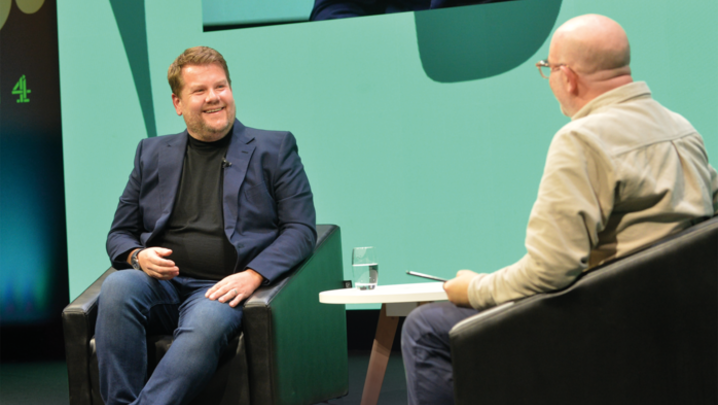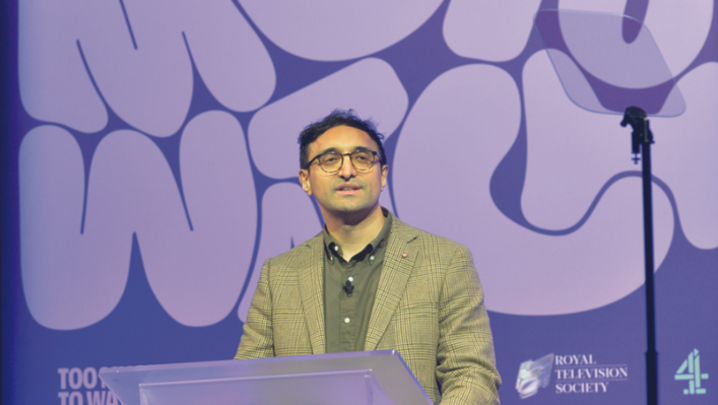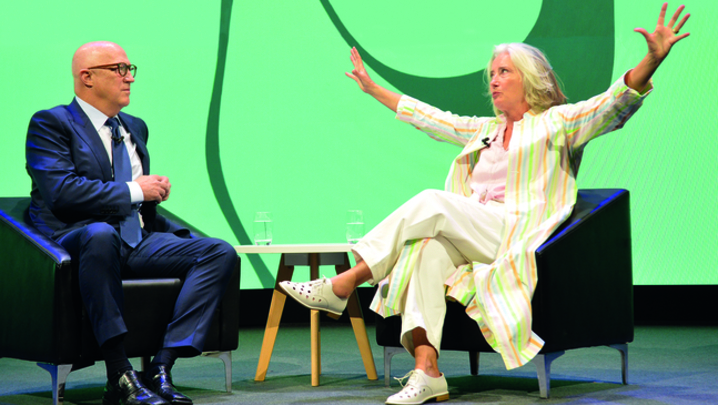Florence Watson is relieved that the magic of the writers room is still intact, even in the age of coronavirus
Something I have noticed about the Covid world is that everyone keeps using the phrase, “Time is meaningless”. January feels like a distant memory but, equally, I’m not sure how we reached October so fast. The amount of news we are having to absorb and then adapt to is unprecedented – and it shows no signs of letting up.
Early last month, my landlord announced that they had decided to sell the home my housemates and I have been living in for the past three years. It’s sad because, during lockdown, I finally built up the courage to do all the DIY, deposit-nullifying projects that I never had time for before.
I hate moving house and, in these stranger times, there is so much more to consider. With homeworking becoming the norm, it was important to find somewhere that would accommodate not only us (and our lockdown kitty, Oscar) but also impromptu office set-ups, desks, swivel chairs and walls thick enough to block out the sound of one another’s meetings.
During all this chaos, I started a new job, script editing on Sister Pictures’ new show The Baby, a horror comedy focused on motherhood. It’s fantastic and, despite only ever meeting the team via Zoom, we have managed to create a dynamic that feels just as strong as any pre-Covid project.
"Imposter syndrome has always been my biggest hurdle, and, without the in-person feedback you get in an office, sometimes it can be very easy to let those thoughts overwhelm you."
If you have ever been in a writers room, you will know there comes a point when it’s hard to work out where your brain ends and everyone else’s begins. The characters live, breathe, love and die in this collective space.
It’s a type of witchcraft I wasn’t sure would operate between screens, but, having been through it, I am pleased to report that good ideas, talented writers and a brilliant showrunner (Siân Robins-Grace) are all it takes to replicate that magic, no matter the circumstances.
I learnt last month that I have won a place on ScreenSkills’ Recalibrate mentoring programme, run by ThinkBigger! for women and disabled people who are at a juncture in their careers.
My mentor is the awe-inspiring Anne Mensah, vice-president of original series at Netflix, who I will be getting to know over the next six months. And who knows, by the end we might even be able to meet in person.
Imposter syndrome has always been my biggest hurdle, and, without the in-person feedback you get in an office, sometimes it can be very easy to let those thoughts overwhelm you. I joined the industry in 2017. As a working-class black woman from Liverpool, talent schemes have been my lifeblood.
The RTS bursary helped me through university. Since then, Channel 4’s Production Training Scheme and The Network scheme run by The TV Foundation have kept me working. I owe a lot to the people who held the door open for me at the start of my career. This month, I got to do the same as a member of the RTS Education committee.
Each year, the RTS awards 30 bursaries to students from low-income families. As a former recipient, it’s a privilege to be part of the selection process. I am blown away by the talent and determination the applicants display.
Now, more than ever, it is crucial that our industry opens not only its doors but its pockets to support them.
As the end of the year gets closer, and I settle into my new home with my work desk sat opposite my bed, I am hopeful that we will take the resilience and adaptability we learnt in 2020 with us into the new year – and time will start to have meaning again.
Florence Watson is a script editor at Sister Pictures and former RTS bursary scholar.







